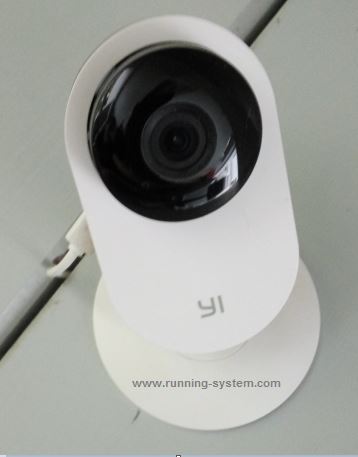I have the privilege to live in a pretty safe country. Nevertheless, just now in the dark months of the year, there is an annual increase in burglaries and thefts. So I decided (like many others) to find a security camera for my home. As a technically affine person, I started a research about the different available security cameras. You can believe me, there are hundreds of them available…
 In this blog post, I do not give you a purchase advice to find a camera for your specific needs.
In this blog post, I do not give you a purchase advice to find a camera for your specific needs.
My intention is to give you some hints, how you can secure your camera against hackers, stalkers and other unwanted guests, as good as possible.
That such an action is more than necessary, was demonstrated in October and September this year. In an incredible DDoS attack, a giant IoT-Botnet named Mirai caused outages and slowness for the services of Twitter, Reddit, Spotify and many more well-known internet companies.
These attacks were made possible thanks to the collective power of thousands of enslaved internet-based security cameras, routers and other so-called Internet-of-Things devices (IoT).
But what can I do to secure my IP surveillance camera?
Keep your security camera Firmware up-to-date
Most vendors of security cameras offer the possibility of firmware upgrades. It makes sense to pay attention by the purchase of a camera, if the vendor of your desired model is doing so, too.
Before you bring your camera online for the first time, check if you already use the latest firmware. Check the website of your camera vendor frequently for updates! Read the operating instructions to learn how to upgrade the firmware.
Use a strong password
Your camera hopefully offers a password protection (if not, throw it away). Choose a strong password and please do not use the default one. For example: 123456 ist not a good choice 🙂
Use encryption for your wireless camera
If you are using a wireless camera you will want to encrypt the connection to your router. Using WPA2 would be the best choice. Of course also take care to use a strong password for your router access!
Better: use a wired camera
I know, this is something most of us do not want to do, myself included. To lay a cable to the camera is not possible very often because of structural conditions. But if it is easy to implement it has some advantages: it is more secure than the wireless version, you can expect a better signal and there is no need to take care of maximum wireless distances.
Disable the default admin account (if possible)
Some cameras offer the possibility to rename or disable the default Admin account. If possible I recommend you to rename or disable the account.
Do not connect your camera to the Internet
If possible and not necessary, do not connect your camera to the internet. Use a local network and set up your camera in a local-only mode. The operating instructions will help you.
Select the place for your camera carefully
The decision where to install the camera is an important one. You have to take care if you meet the legal requirements, but the place should also be protected against weather conditions and manipulation.
Also consider if you want to see the monitored zone on the internet. In the event, that your camera is hacked one day your bedroom or restroom would be such a zone, I guess. So better leave the camera out of private zones and also avoid to film the property of your neighbour 🙂
You feel someting is missing here or wrong? Please let me know – write a comment or a tweet (@lessi001)
